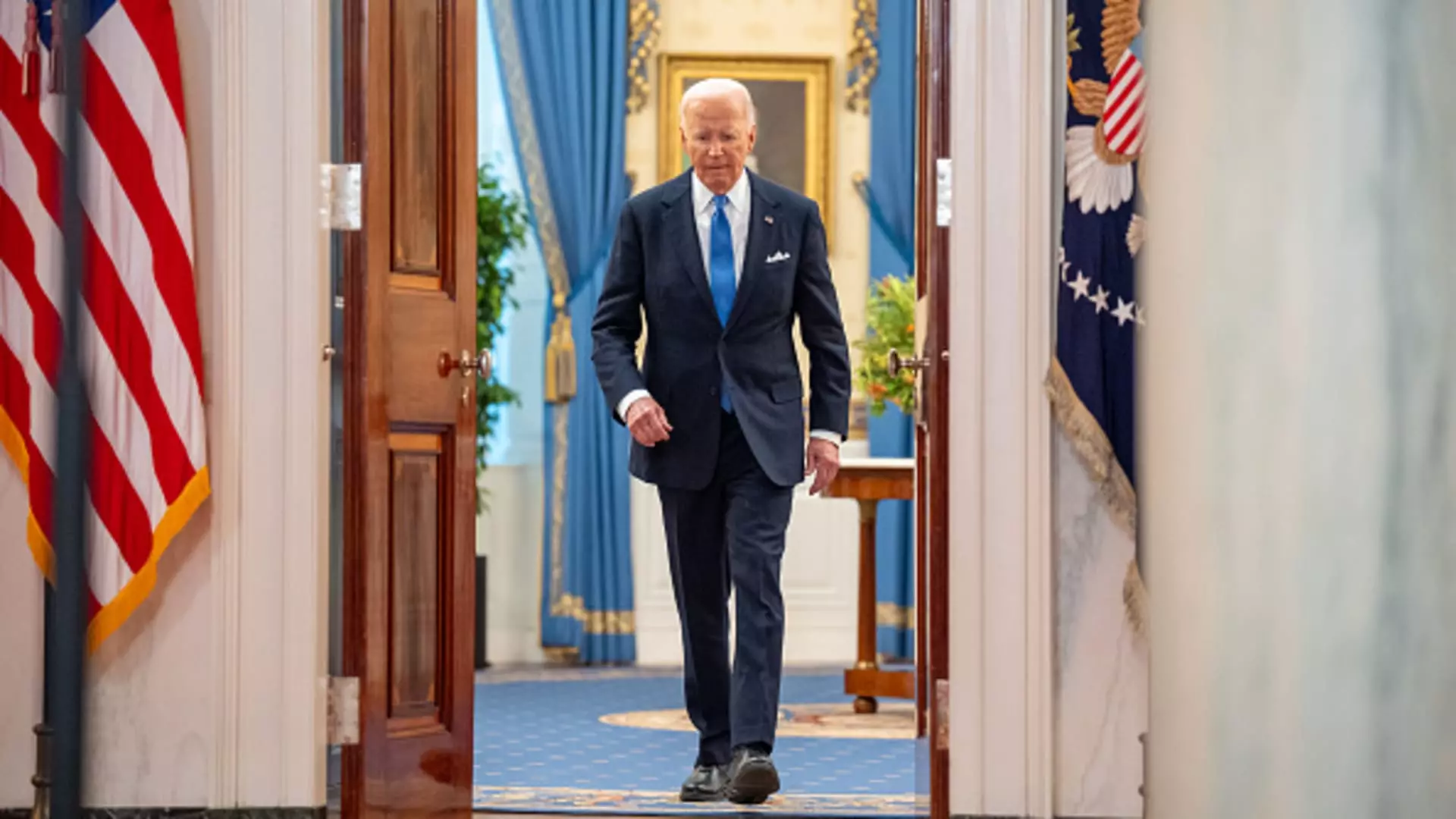As the 2024 presidential race heats up, the Democratic Party finds itself at a crossroads. Recent discussions have emerged that suggest it’s time for a shift in strategy, particularly regarding the candidacy of President Joe Biden. With growing concerns about his age and performance, a daring proposal has begun circulating among influential Democratic circles, calling for an expedited primary process to identify a new nominee. This proposal, championed by Rosa Brooks and Ted Dintersmith, shines a light on the urgent need for reflection within the party.
Biden’s candidacy has already faced scrutiny following a less-than-stellar performance in the debates, most notably his encounter with former President Donald Trump. Political strategists, lawmakers, and voters alike have raised alarms over the president’s ability to mount a successful campaign. The idea of Biden stepping aside may seem radical, yet Brooks and Dintersmith argue that this could provide a lifeline for a party desperately seeking a viable candidate to rally around. Their memo outlines a plan for Biden to announce his departure from the race, potentially allowing for a fresh lineup of Democratic contenders.
The core of Brooks and Dintersmith’s proposal is an ambitious blueprint for transformation. They envision Biden making a bold exit in mid-July, positioning him not as someone relinquishing power but as a hero stepping down for the greater good. The memo suggests a narrative twist that reimagines Biden’s legacy, moving from an unpopular leader to a venerable figure within the party. This reframing has the potential to invigorate not only the party but also Americans weary of political stagnation.
The proposed “blitz primary” stands at the heart of this strategy. It seeks to create a swift, exciting environment where potential candidates could rapidly put forth their platforms. The envisioned format aims to engage voters through a series of high-profile social media campaigns and candidate forums, moderated by beloved public figures like Oprah Winfrey or Taylor Swift. This innovative approach could attract both attention and engagement from a diverse voter base, circumventing traditional political machinery.
While the idea harbors potential, it is not without challenges. Critics may question the viability of reshaping the nomination process so drastically. The party’s infrastructure has often proven resistant to rapid change, and the likelihood of achieving such a swift transition may be hindered by established norms. Moreover, there are logistical considerations: how quickly can nominees be vetted, and will voters be adequately prepared to make informed decisions? Brooks and Dintersmith acknowledge these hurdles, emphasizing their proposal is more of a catalyst for discussion than a guaranteed roadmap.
Furthermore, the reaction to the proposal has been mixed. Although Brooks stated that many have expressed enthusiasm, there remains skepticism about its feasibility. The political landscape is fraught with competing interests and a multitude of stakeholders, all of whom would need to be on board for such a fundamental shift to occur. The respondents who characterized the idea as potentially impossible underscore the uphill battle ahead.
Although filled with uncertainty, Brooks and Dintersmith’s call for change serves as an important conversation starter for Democrats. Politically charged environments often demand creative solutions, especially when traditional strategies appear insufficient. The prospect of reimagining leadership through an accelerated primary process may resonate beyond party lines, breathing new energy into the electoral process. It reflects a broader sentiment: that political renewal is essential for revitalizing public trust.
Ultimately, the Democratic Party stands at a crucial juncture. The willingness of influential figures like Brooks and Dintersmith to propose daring alternatives encourages a re-evaluation of current strategies. While the path forward may remain murky, engaging in such discussions may lead to a stronger, more unified Democratic presence in 2024. The questions raised by this proposal challenge party members to reflect on their values, priorities, and the future course of American politics amid an evolution that may very well define the upcoming election cycle.


Leave a Reply